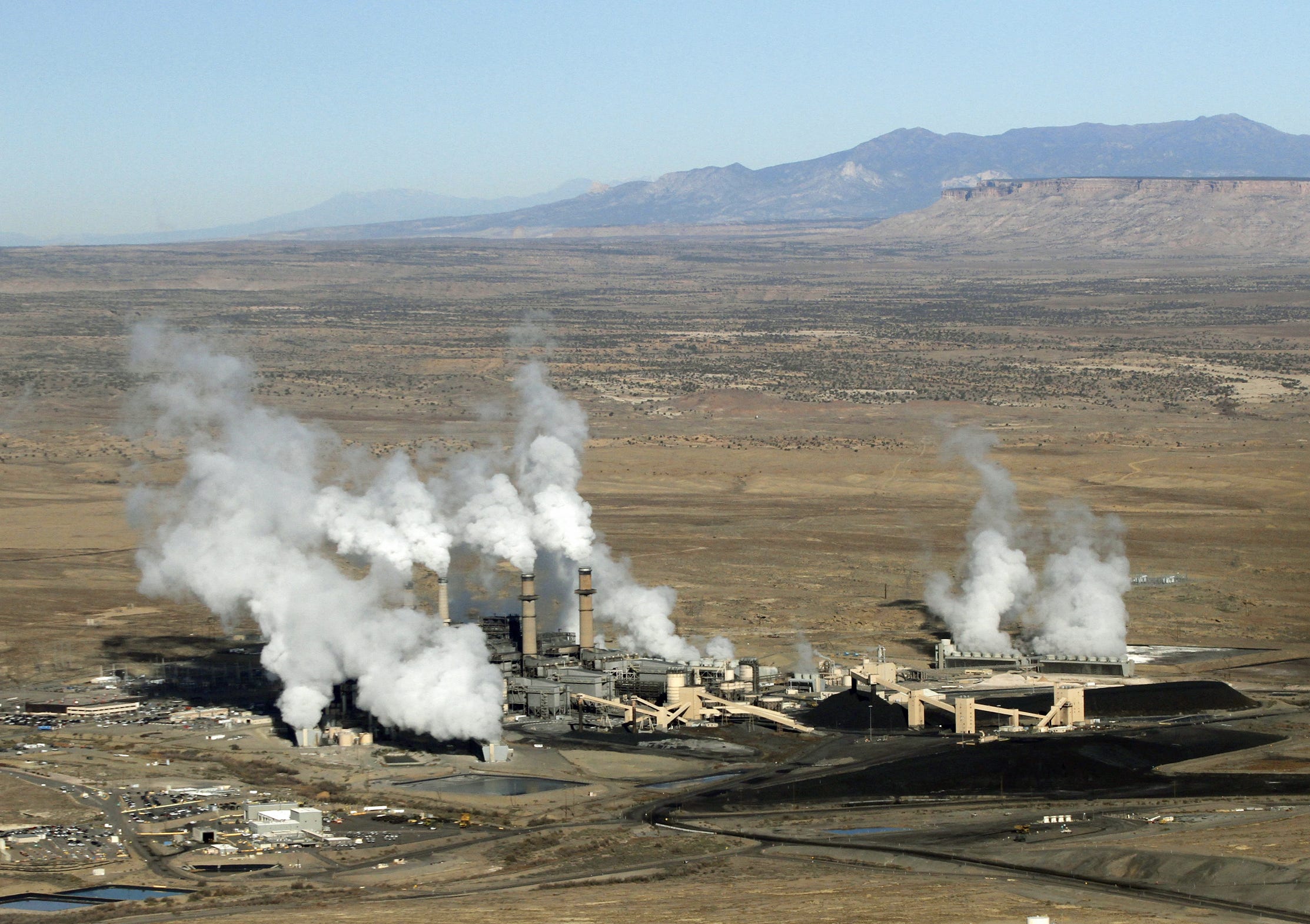Defendants file to move Farmington's SJGS lawsuit to federal court
 John R. Moses
John R. MosesFARMINGTON — Four defendants that are being sued by the City of Farmington in a state court are moving to make the lawsuit over the future of the now-closed San Juan Generating Station a federal case.
A lawsuit filed by the city on Sept. 21 against PNM and other plant owners seeks judicial aid in effecting transfer negotiations – and a tidy shutdown that does not damage the plant or end its air permit. The suit remained in a state court as late as Sept. 29 with no presiding judge assigned and a string of recusals filed by several judges.
On Friday the defendants filed to move the matter to the federal courts, and the city vowed to oppose the change and argue that the case should instead be taken up in the state court.
A filing on Sept. 30 by the law firm Hinkle Shannon LLP of Santa Fe that appeared on the state court website stated the four entities named in the suit want to move the action to the United States District Court for the District of New Mexico, away from the state’s 11th Judicial District Court in San Juan County.
Power struggle: Farmington vows to get ownership of San Juan Generating Station
The defendants argue that since the lawsuit involves an agreement filed with a federal agency, the Federal Energy Regulatory Commission (FERC), and because the utilities are federally regulated, a federal district court is the proper venue.
“This case involves a dispute arising from a FERC-jurisdictional contract, over which this Court has exclusive jurisdiction under the Federal Power Act… and original jurisdiction under 28 U.S.C. § 1331, given that the dispute arises under the FPA,” the federal court filing states in part.

The filing also states that the FPA gives federal district courts "exclusive jurisdiction of violations of [the FPA] or the rules, regulations, and orders thereunder," as well as "all suits in equity and actions at law brought to enforce any liability or duty created by, or to enjoin any violation of, [the FPA] or any rule, regulation, or order thereunder." 16 U.S.C. § 825p.”
The City of Farmington plans to fight that move.
“The City will be responding to the motion and strongly assert the matter is within the jurisdiction of the state court,” City of Farmington spokesperson Georgette Allen said on Sept. 30.
Defendants in the lawsuit are SJGS co-owners Public Service Company of New Mexico ("PNM"), Tucson Electric Power Company, Incorporated County of Los Alamos, New Mexico, and Utah Associated Municipal Power Systems. The City of Farmington, the plaintiff, also owns part of the power station.
Filing questions whether SJGS air permit can be kept after shutdown
In the court filing, attorneys for the defense argue that the city is asking the court to stand in for federal regulators and change the terms of an exit agreement known as NEDA governing the San Juan Generating Station that was reached among its owners in 2017.
City of Farmington goes to court seeking to enforce SJGS facility takeover rights
“The City of Farmington seeks a declaration that, pursuant to the NEDA, Defendants are obligated "to convey to Farmington their rights, titles and interest in the San Juan Project" and "engage in good faith negotiations to agree on non-essential terms for conveying the San Juan Project to Farmington,” the filing states.
“Both requests would require the court to not only interpret the provisions of a FERC-jurisdictional contract, but actually modify the contract's terms,” the filing states
The attorneys argued that if Farmington gets the injunctive relief it seeks, the defendants would be required to “extend the contract beyond its September 30, 2022 expiration date and cease decommissioning the SJGS, despite the existence of a FERC-approved contract requiring Defendants to take that very action.”
They also question the city’s request that an air permit that is not being used anymore by the operator be maintained for the city’s future use.
“Finally, the City of Farmington's Complaint demands that Defendants maintain a federally enforceable air permit, issued pursuant to subchapter V of the Clean Air Act, 42 U.S. Code § 7661, et seq., which Defendants cannot legally maintain without intending to actually operate the permitted emission units,” the filing stated. “Thus, a critical component of the requested relief also involves the substantial federal question of whether a permittee may maintain a permit beyond the time it intends to operate the permitted unit under a landmark piece of federal environmental legislation.”
As the last coal burned, SJGS employees expressed a mixture of emotions
Several state judges recused themselves
The move to change courts followed a string of judicial recusals reflected in state court filings online and the city’s move to bar one judge from hearing the case.
The first judge, the Hon. Bradford Dalley, recused himself on Sept. 27. The case was reassigned to the Hon. Sarah V. Weaver, who promptly recused herself and the case was then assigned to the Hon. Curtis R. Gurley.
Farmington City Attorney Jennifer Breakell exercised a peremptory challenge allowable under state law “excusing the Hon. Curtis R. Gurley from presiding over the above-captioned case and matter,” her filing read.
The case was then reassigned to the Hon. R. David Pederson, a McKinley-County-based 11th District judge who on Sept. 28 promptly recused himself from the case. As of the morning of Sept. 30 it had been assigned to the Hon. Karen L. Townsend.
Federal court will consider the request
Notifying all opposing parties and the state court was part of the legal process. Once a notice is filed, the federal court must decide whether it can hear the case or whether it must remand all or part of it back to the state court.
"PLEASE TAKE NOTICE that, on September 30, 2022, Defendants in the above-captioned matter removed this action to the United States District Court for the District of New Mexico, by filing a Notice of Removal in that Court," the Sept. 30 filing stated. "A copy of the Notice of Removal is attached hereto as Exhibit A, omitting attachments. Accordingly, and pursuant to 16 U.S.C. § 1446(d), this Court may proceed no further unless and until the case is remanded."